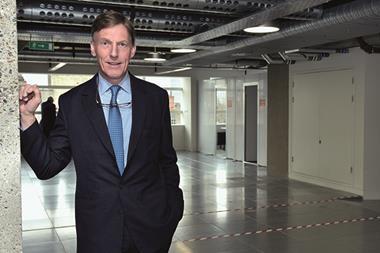Being a landlord isn’t what it used to be. Conventional wisdom has always found bricks and mortar to be a sound investment, but for the many commercial landlords whose buildings are lying empty, the situation can be a difficult one.

A void property means not just a loss of rental income, but also liability for running costs like business rates, insurance, maintenance and security.
Unfortunately, the reason why vacancies are on the rise, even in major business hubs such as London, is that many commercial landlords haven’t moved with the times and remain mired in a ‘lease and forget mentality’.
It’s no secret that the post-pandemic workforce is demanding hybrid working environments, characterised by communal areas, wi-fi enabled spaces, private phone booths, inclusive meeting rooms and hot-desking. They’re also environmentally conscious, with a recent global IBM survey revealing that 68% of workers would be more inclined to accept positions from sustainably conscious companies.
In the past year alone, 1.8 million m2 of office floorspace was taken out of use in the UK according to research by leading private wealth law firm Boodle Hatfield. Many commercial landlords who can afford to do so are taking their properties off the market in order to develop them into Grade A office space. This is because the market dictates that providing the shell of a building and leaving a corporate tenant to lease, design and outfit it, is rightly, no longer acceptable.
Increasingly the solution is to partner with flexible office providers (FoP), who will lease and repurpose a whole building, for fifteen years or more, and then remodel it, to make it more attractive to businesses. Throughout the period of the lease they will manage everything, so that the landlords are freed from such concerns as business rates, maintenance or finding multiple tenants on short leases.
Already there are a number of players in the market offering flexible office provision, but it’s vital that landlords undertake due diligence to ensure any potential property leaseholder has a track record of successful renovations and satisfied clients. In this relatively new sector, professional experience can vary wildly as can perceptions of quality, environmental considerations and ensuring that office designs are modern, desirable and emphasise the use of natural light and fresh air.
At the higher end of the spectrum, FoP specialists will work with their tenants to create bespoke offices that reflect their individual needs, personalities, and sustainability objectives, for example incorporating recycled materials into furnishings or utilising local suppliers to minimise carbon emissions. Naturally this means any remodelling will be undertaken to the highest quality, so at the end of a lease, a landlord’s property should be in top condition and worth far more than it was in its original state.
The aim should be the creation of something that is similar to a top of the range boutique-hotel in terms of providing on-demand spaces and corporate services, which have the effect of blurring the lines between home and work. For example. access to high-end gyms, swimming pools, retails spaces, and even dry-cleaning services are not beyond the realms of possibilities. Their incorporation into a building means the office becomes more than a place to work, but also to play, relax and meet people.
This is the secret behind the success of high-level FoP. A building designed and renovated to showcase the brand identity of the businesses it hosts, while meeting and exceeding the needs of individuals workers, and then forming cohesive communities from them, as a result of a shared sense of space, belonging and camaraderie. What tenant would turn this down and go elsewhere? After all, they have become part of something bigger, and this is a win-win for all parties.
Yaron Rosenblum is co-founder of Canvas Office






























No comments yet